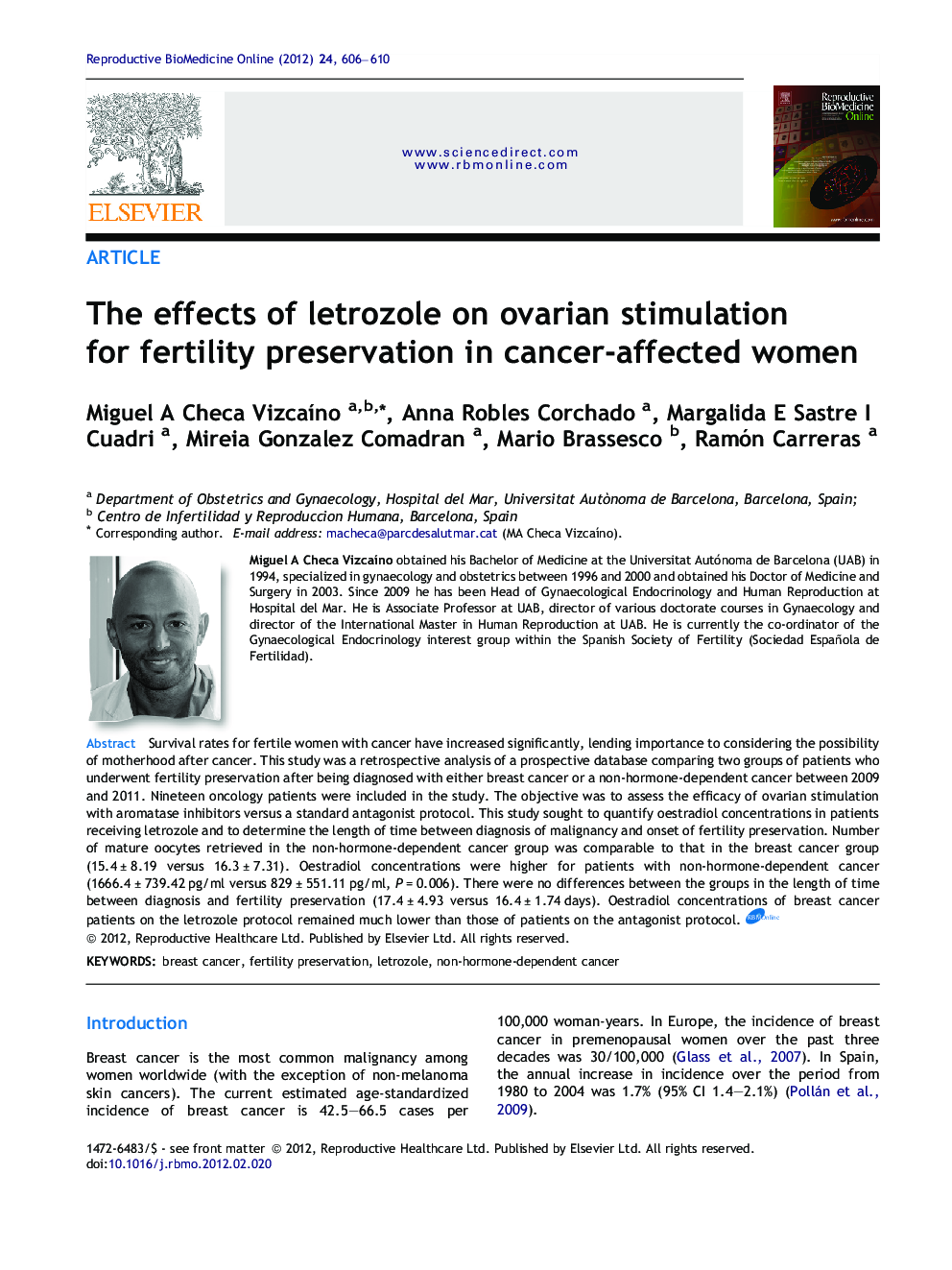| Article ID | Journal | Published Year | Pages | File Type |
|---|---|---|---|---|
| 3970819 | Reproductive BioMedicine Online | 2012 | 5 Pages |
Survival rates for fertile women with cancer have increased significantly, lending importance to considering the possibility of motherhood after cancer. This study was a retrospective analysis of a prospective database comparing two groups of patients who underwent fertility preservation after being diagnosed with either breast cancer or a non-hormone-dependent cancer between 2009 and 2011. Nineteen oncology patients were included in the study. The objective was to assess the efficacy of ovarian stimulation with aromatase inhibitors versus a standard antagonist protocol. This study sought to quantify oestradiol concentrations in patients receiving letrozole and to determine the length of time between diagnosis of malignancy and onset of fertility preservation. Number of mature oocytes retrieved in the non-hormone-dependent cancer group was comparable to that in the breast cancer group (15.4 ± 8.19 versus 16.3 ± 7.31). Oestradiol concentrations were higher for patients with non-hormone-dependent cancer (1666.4 ± 739.42 pg/ml versus 829 ± 551.11 pg/ml, P = 0.006). There were no differences between the groups in the length of time between diagnosis and fertility preservation (17.4 ± 4.93 versus 16.4 ± 1.74 days). Oestradiol concentrations of breast cancer patients on the letrozole protocol remained much lower than those of patients on the antagonist protocol.The survival rates for fertile women with cancer have increased significantly, lending importance to considering the possibility of motherhood after cancer. In our study, we compared two groups of patients with cancer: a group with breast cancer, which is hormone dependent and is the most common type of cancer in women, and a group of non-hormone-dependent cancer patients. We compared the efficacy of two protocols in a retrospective analysis of a prospective database. In the patients with breast cancer, we used the protocol from the Controlled Ovarian Stimulation Treatment with Letrozole Supplementation Study (COST-LESS), modified to avoid the high concentrations of oestradiol to prevent the risks of the increase in hormone-dependent cancer. In the other group, we used the usual antagonist protocol. No difference was observed between the two groups in terms of the numbers of mature oocytes retrieved or in the time taken to complete the stimulation. The oestradiol concentrations of the breast cancer patients on the modified COST-LESS protocol remained much lower than those of the patients on the antagonist protocol, which is beneficial for preventing tumour growth in patients with hormone-dependent breast cancer. In addition, healthcare providers should inform their oncology patients of their options at the time of diagnosis and urge them not to delay initiating fertility preservation.
